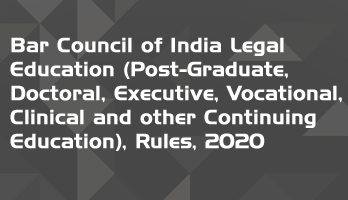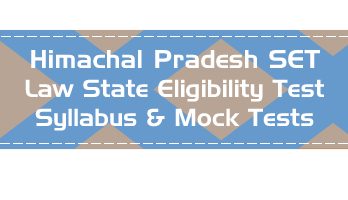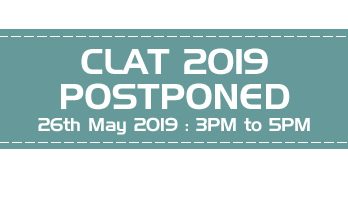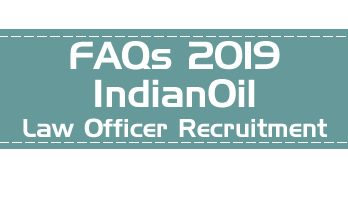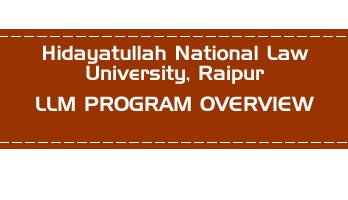Q : Which national law schools offer a 3-year LLB?
Ans :
None.
All National Law Schools in India offer the integrated 5 year LLB program.
Criteria for admission is 10 + 2 and selection is through the CLAT exam.
Q : Which course is better integrated, an LLB of 5 years or a B.Com LLB of six years? Why?
Ans :
I answered the same / similar question earlier. That was about BBA + LLB, your question is about BCom + LLB. But the answer will be the same – just read BBA as BCom 🙂
Let us look at the question from a time point of view.
- BBA degree is a 3 year program
- LLB degree is a 3 year program
So if you complete your BBA first and then take take up LLB, you will have spent 6 years to obtain your BBA + LLB.
An integrated dual-degree 5 year LLB program will give you a BCom / BBA / BA + LLB – so you save one year.
Let us look at the question from a career plan point of view.
If your aspiration is to ultimately pursue a law degree, it makes sense to enrol in a integrated BBA LLB program.
But remember :
– It is a five year commitment
– Depending on the College / University rules, you may not get even a BBA degree if you decide to opt out midway.
If you are not sure of your long term career plans, you should complete your BBA first and then decide on a MBA / LLB at a later date.
Let us look at the question from an employment prospects point of view
If you intend to pursue a BBA + LLB, i.e. an integrated five year course, the National Law Schools (National Law Universities) score above regular Universities in terms of campus placements and corporate career opportunities.
The best law firms from across India come to recruit from the NLU campuses; whereas graduates from other Universities will not have the same advantage.
A 5 year LLB graduate from a regular University will be treated by recruiters as on par with a 3 year LLB graduate from same / similar Universities.
[* Some University Law Colleges do have campus placements, but they typically do not attract the Tier-1 law firms]
Bottom-line : The BBA or BBA + LLB decision really depends on your long term career aspirations and personal preference.
BBA+LLB saves you one year, but it requires a five year commitment.
Completing a BBA first will give you an opportunity to choose between MBA / LLB / taking up employment after graduation.
If BBA+LLB is your decision, aim for the National Law Schools and the Top colleges in India to get the maximum ROI from your degree from an employment perspective.
If independent practice is your goal, it doesn’t matter where and how you complete your LLB. You PR management, contacts and business development skills will be the key to success.
Q : How can I get into NLSIU bangalore after I am 26 years old?
Ans :
By cracking the CLAT !
As of now, there is no age limit for taking the CLAT. The upper age limits that were previously prescribed by the BCI were struck down by the Allahabad HC.
You should be able to take up the CLAT , crack it with the requisite marks / ranks to make it to NLSIU Bangalore.
26 is a decent age to get into the NLSIU, of course you might be older than your peers at college, but you also bring in some additional experience / qualifications which will add value to your profile.
Your age should not affect your placement / job prospects after completing the course. (Other than with companies that are looking for absolute freshers to be hired at entry level)
Q : Where can I get the brief of any legal case?
Ans :
Which country are you referring to ? i.e. where is the case filed ?
Every country has its own rules / systems / process for filing, storing, sharing the details of a legal proceeding.
In India, wherever the courts have been computerised, the case history, details of the proceedings and the transcripts of each hearing can be accessed through the Court Information System kiosks that are placed in the court premises.
If you know some essential details such as the case number, the court and the year it was filed, you can retrieve the details on the kiosk screen.
Old cases and cases in non-computerised courts are still on hard-copies / prints / written documents and there are best obtained from the lawyers (who should have copies) else through the court admin officials.
Q : What is the best way to find a study group for BAR exam?
Ans :
Which Country Bar exam are you referring to ?
Depending on the country, we’ll be able to suggest the best way to prepare / best group to join.
Q : What is the best way to find a study group for BAR exam?
Ans :
Which Country Bar exam are you referring to ?
Depending on the country, we’ll be able to suggest the best way to prepare / best group to join.
Q : Is it legal to write reviews about individuals?
Ans :
You can . . . but consider the following :
“Defamation”
Any intentional false communication, either written or spoken, that harms a person’s reputation; decreases the respect, regard, or confidence in which a person is held; or induces disparaging, hostile, or disagreeable opinions or feelings against a person.
Defamation may be a criminal or civil charge. It encompasses both written statements, known as libel, and spoken statements, called slander.
“Slander”
‘Oral defamation’, in which someone tells one or more persons an untruth about another which untruth will harm the reputation of the person defamed. Slander is a civil wrong (tort) and can be the basis for a lawsuit.
Damages (payoff for worth) for slander may be limited to actual (special) damages unless there is malicious intent, since such damages are usually difficult to specify and harder to prove.
Some statements such as an untrue accusation of having committed a crime, having a loathsome disease, or being unable to perform one’s occupation are treated as slander per se since the harm and malice are obvious, and therefore usually result in general and even punitive damage recovery by the person harmed.
“Libel”
1) n. to publish in print (including pictures), writing or broadcast through radio, television or film, an untruth about another which will do harm to that person or his/her reputation, by tending to bring the target into ridicule, hatred, scorn or contempt of others.
Libel is the written or broadcast form of defamation, distinguished from slander which is oral defamation. It is a tort (civil wrong) making the person or entity (like a newspaper, magazine or political organization) open to a lawsuit for damages by the person who can prove the statement about him/her was a lie.
Publication need only be to one person, but it must be a statement which claims to be fact, and is not clearly identified as an opinion. While it is sometimes said that the person making the libelous statement must have been intentional and malicious, actually it need only be obvious that the statement would do harm and is untrue.
Proof of malice, however, does allow a party defamed to sue for \”general damages\” for damage to reputation, while an inadvertent libel limits the damages to actual harm (such as loss of business) called \”special damages.\”
\”Libel per se\” involves statements so vicious that malice is assumed and does not require a proof of intent to get an award of general damages.
Libel against the reputation of a person who has died will allow surviving members of the family to bring an action for damages. Most states provide for a party defamed by a periodical to demand a published retraction. If the correction is made, then there is no right to file a lawsuit.
Q : Why does the judge in a law court break the nib of an ink pen after giving an order?
Ans :
Not after every order . . . !
On an average, a court can deal with 10’s of cases every day; and if they give an order in at least half of them, that’s a lot of broken pens 🙂
The nib-breaking thing is supposed to happen only when a death penalty has been issued.
And moreover, it is a legacy of the British Raj, where the act was supposed to be symbolic and theatrical.
If a pen has been used to order the death of a person, this pen has ‘tasted blood’, so it is also broken so that it doesn’t take another life.
Is it a rule to break the nib ?
Nope. It is just something that some judges do; and is often shown as a norm in Bollywood movies when the judge declares ‘Sada ‘e’ maut’ 🙂
Which makes me wonder . . . what about Judges who use a Ball point pen ? Breaking the nib in a ball point pen is no easy task !
Which also makes me wonder . . . If a court is completely computerized, whereby the Judge digitally signs the order / processes it on online system . . . will he break the keyboard ? 😛
Q : Should the government link the Aadhaar number to EVM to stop fake voting?
Ans :
Yes; Voters ID must be replaced with Aadhaar; But EVM should not be linked !
The current voter ID system in India is broken. Ask any average person about how / where to get a voter ID issued or updated, I wouldn’t be surprised if 95% of the people have no clue!
- How do you register as a voter in your domicile ?
- How long do you have to stay in a particular city / town / village to be eligible to vote there ?
- How do you transfer your voter ID from one area to another ?
- Forget all these questions, who issues voter IDs in the first place ???
These are all questions that most of the people around you would not be able to answer.
A few days before elections, some party workers will turn up seeking to assist you in applying for a voter ID. They may ask you for details, but are you sure that they are actually helping you and not misusing the details ?
A few years ago, when I went to the voting booth; and I found that someone has already voted in my name! This is not a unique experience – just ask your friends / family members who have been voting regularly and they too would have experienced this sometime in the past.
The modus-operandi seems to be to wait till later in the day and run a quick check on the registered voters who have not turned up so far; and use some impersonators to vote in their names.
BTW, the Election commission issues Voters ID cards . . . Now, go to the Election Commission’s website and try to figure out the process. It is quite cumbersome!
Just link Voting to Aadhaar card . . .
- Completely get rid of the current voters ID cards.
- Make it mandatory that only folks who have Aadhaar can vote.
- When I go to the Voting booth, my fingerprint bio-metrics will confirm my identity and also my eligibility to vote in that constituency. (My constituency will be based on the address in the Aadhaar card.)
- If I want to vote in a different place because I have moved to a different city – as long as my Aadhaar address is updated, I should be able to vote there!
- Also, Aadhaar is unique – so I wont be able to vote twice / vote elsewhere / impersonate someone to vote in their name.
Why should Aadhaar not be linked with the EVM ?
India follows a process of secret ballot. So while entry into the voting booth should be linked with Aadhaar, there shouldn’t be any way where the secrecy of my vote is compromised.
Once I enter into the voting booth, I should be able to use the EVM normally, to cast one vote.
If the EVM keeps track of my Aadhaar number, it would be possible for someone who has access to the EVM to figure out who I voted for.
Bottom line – Yes. Voting (Voter’s ID) must be linked to Aadhaar numbers and it will happen in a few years.
But EVMs should not be linked to Aadhaar to maintain the sanctity / secrecy of the voting process.
Q : If every state of India becomes an independent country, won’t the overall growth of that state be more?
Ans :
United we stand . . . Divided we fall . . .
Even now, every state has the opportunity to do better.
+
There is always the safety net of being supported by the rest of the country in your hour of need.
+
The the Indian Union has the advantage of scale, shared resources, collective bargaining power.
. . .
While I can go on and on and on… but I would like to understand the rationale behind your question.
Why do you think if each state goes independent, there will be better growth ???
Do you have any data to support your question ?
Q : Is it legal in India to park your vehicle outside of a stranger’s house without his or her permission?
Ans :
Legally, yes and no.
A road is a public space / public property.
You can park your vehicle on any road if it is legally allowed to park there. i.e. If the road is not a ‘No parking’ zone or a restricted parking zone – as decided by the proper authorities.
If tomorrow I decide to put up a No parking board on the road in front of my house, it does not become a ‘No parking’ zone. Only the traffic police or other proper authorities can put up such boards.
Now, if the the road is not a No parking area, can you park anywhere you like ?
You cant. The reason is that the road is again a public infrastructure utility and is supposed to provide access to all the properties along that road.
I cant just go and park on any road in front of someone else’s gate. He/she can object if my car is blocking access to their property in any way. E.g. I park on the road and block access to someone’s garage.
Bottom line – if the road is not a restricted parking area; and your vehicle is not obstructing access to someone else’s property, you can park anywhere.
Strictly going by the law, if I park in front of someone’s pedestrian gate in such a way that reasonable access is still possible, I can legally park there.
If I park in front of a garage door or a big gate such that I am making it difficult or impossible for someone to park a car in their own garage / enter their own gate – it is illegal.
Q : Can you appear for CLAT and NEET in the same year?
Ans :
Yes you can.
- As long as there is no clash in schedule
- and you meet the eligibility criteria for both the exams
- and you manage your time relatively better, to prepare for both the exams.
there is no reason why you should not take both the CLAT & the NEET.
Q : If we transfer our premises in India to our inheritant, can the lease be cancelled by the heir?
Ans :
When the ownership of a property changes, it carries with it all the encumbrances attached to the property.
These can be taxes due, mortages and also lease rights.
So normally when a property is being sold, the landlords will get it vacated before the sale.
In case of an inheritance, when the ownership changes, the lease also gets transferred and will remain valid for the original period.
Can the heir cancel the lease ? Whatever were the T&C agreed by the original owner – the same will be applicable on the new owner.
To be more clear, such change in ownership should ideally be accompanied by a renewed lease agreement with the new owner. With perhaps some minor changes as agreed by both the parties.
What happens if the new owner / heir refuses to sign a new lease agreement and asks for the premises to be vacated ?
In the absence of a new agreement, the old agreement will still be valid.
If the lease agreement had a clause to cancel the lease midway, the new owner / heir can do so as per the T&C of the original agreement.
Arbitrary cancellation of lease is not possible.
However, if the lease holder refuses to vacate and the case goes to court, the T&C of the original agreement are more likely to be upheld by the court.
Q : What is the future of relationship between India and Myanmar?
Ans :
I will not delve into the intricacies of geo-policitics, religious politics etc.
Historically Myanmar (Formerly known as Burma) has had a relatively close relationship with India.
A number of Indians had migrated to Burma or had business interests there during the British era.
There is a sizable population of Indian origin people in Myanmar.
Depending on the specific situation and the stakes involved; each country will try to protect its own interests, so relationships between Nations will keep waxing and waning.
OT : This question reminded me of this song “Mere Piya Gaye Rangoon.. wahan se kiya hai Telephoon”
Rangoon is in Myanmar 🙂
Q : How many states and union territories are there in India?
Ans :
If you had asked this question a week ago, I would have fumbled with the answer 🙂
Sometime last week I was updating an old PPT from the pre Telangana days. That’s when I rechecked the current list of states and updated myself that there are 29 States and 7 Union territories !
States :
- Andhra Pradesh
- Arunachal Pradesh
- Assam
- Bihar
- Chhattisgarh
- Goa
- Gujarat
- Haryana
- Himachal Pradesh
- Jammu and Kashmir
- Jharkhand
- Karnataka
- Kerala
- Madhya Pradesh
- Maharashtra
- Manipur
- Meghalaya
- Mizoram
- Nagaland
- Odisha
- Punjab
- Rajasthan
- Sikkim
- Tamil Nadu
- Telangana
- Tripura
- Uttar Pradesh
- Uttarakhand
- West Bengal
Union Territories
- Andaman and Nicobar Islands
- Chandigarh
- Dadra and Nagar Haveli
- Daman and Diu
- Delhi
- Lakshadweep
- Puducherry
Q : Can I file a consumer case against a consultancy, who promised for a job and took a lot of money but not turning up now?
Ans :
Yes you can . . .
You can go to the Consumer Redressal Forum (Consumer court), if the consultancy or it’s owners / managers are still reachable.
OR
If the consultancy has disappeared with your money, you can lodge a police complaint u/s 420 for Cheating. (Ideally if you know others who have been cheated by the same agency, get together with them and lodge a complaint.)
Explanation :
In cases of ‘Breach of contract’, you can go to the Consumer court.
– Here the consultancy still exists to respond to your complaint.
– The consultacy took your money with the intention of providing you a job, but could not do so for various reasons.
– There was no intent to cheat or misrepresentation; just a ‘Breach of the contract’
– If the consultancy / its representatives come to the consumer court to defend themselves, your complaint has a chance of being settled.
If the consultancy has disappeared, lodge a police complaint.
– Here there was a intent to cheat.
– There was misrepresentation; wherein the consultancy made promises that they were aware of not being able to fulfill.
– They have absconded with your money.
You can consult with a Advocate on the specifics of your case and proceed accordingly.
Q : Is there a no-fault divorce in Indian law? Will there be a need for such a law in the future and how would you create such a law in the Indian context?
Ans :
Yes, there is . . .
A no fault divorce would be in-line with a ‘Divorce by mutual consent’ whereby under Section 13 B of the Hindu Marriage Act, the couple can seek divorce by filing a petition before the court.
Mutual consent means that both the parties agree for peaceful separation, citing irreconcilable differences or mutual incompatibility.
Here both the parties agree that the marriage is not working, they have tried all options, counselling etc. unsuccessfully; and it is in the best interest of the couple to dissolve the marriage and move on with life.
You can say here that both the parties are ‘innocent’ i.e. there is no harassment / abuse etc. Just that things did not work out for whatever reasons.
The questions of alimony / maintenance and child custody still remain, but they can be settled as per mutually agreed by the couple.
Another example of a ‘no fault divorce’ is if the spouse has been missing for seven years or more; with no information available about location, life or death; the partner can file for a divorce to enable her / him to move on with life. (Till she / he is divorced, it is illegal to get married again.)
The missing spouse may be dead / detained / lost / wandering around due to an unsound mind or loss of memory etc. So you can’t say that the disappearance was intentional.
The partner is not accusing the missing spouse of anything illegal / immoral / criminal – just that there is no information for more than seven years; and life must go on.
Q : Can you be a lawyer without going to law school? Can you take the bar exam without a college degree? If you pass, are you allowed to receive your license to practice law in that state?
Ans :
From my answer to a similar question :
Which country and state are you referring to ? – in the context of your question.
The correct answer will completely depend on your answer to the above question.
For example:
- In India, you have to have a LLB degree to be eligible to apply for the Bar / Bar exam.
- In Japan, you need not have a basic qualification in Law to take up the Bar exam.
- In the US, most states require you to have a recognized Law Degree for taking up the Bar Exam; but a few states allow something called ‘Reading the law’Quoting from Wikipedia “A small number of jurisdictions still permit this. In the states of California,Vermont,Virginia and Washington, an applicant who has not attended law school may take the bar exam after reading law under a judge or practicing attorney for an extended period of time.The required time varies. Exact rules vary as well; for example, Virginia doesn’t allow the reader to be gainfully employed by the tutoring lawyer, while Washington requires just that.The State of New York requires that applicants who are reading law must have at least one year of law school study and Maine requires applicants to have completed at least two-thirds of a law degree.Such persons are sometimes called country lawyers or county-seat lawyers.In 2013, 60 people became lawyers this way as opposed to 84,000 via law schools.”
So, if you specify the country and the state in the context of your question, you will get an accurate answer.



